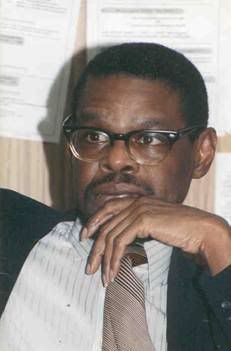Imagine what it must have felt like to receive an invitation to the White House. Images of sugar plumbs must have been dancing in their heads, when the CEOs of the most powerful financial institutions in the world received invitations from President Barack Obama.
But it wasn’t that kind of party.
Arrayed around a long mahogany table in the White House, austere and barren to the bone, save a single glass of water for each, without ice, the CEOs had not even a morsel of bread to be washed down with their water. And, “For those who finished their glass," writes Eamon Javers of Politico, "no refills were offered."
One of the attendees described it as a “Spartan message” to the bank executives. This was not Santa Land or Disney World, as in good ole days, with cocktails all around, and laughter and plenty of idle chatter and backslapping.
This had the feel of something ominous.
From the White House, there were five principal attendees: chief of staff Rahm Emanuel, who arrived a few minutes late, Treasury Secretary Timothy Geithner, Council of Economic Advisers chairwoman Christina Romer, senior adviser Valerie Jarrett and director of the National Economic Council Larry Summers. Uncharacteristically, Summers said almost nothing, and it appeared to one participant as if he had been told to remain silent.
To break the ice, JPMorgan Chase CEO Jamie Dimon offered Geithner a fake check for $25 billion, the amount of Troubled Asset Relief Program money that the company has accepted. Although many of those in the room laughed, Geithner didn’t keep the check.
The president entered the room a few minutes later and made a lap of the table, shaking hands and saying hello to the CEOs, several of whom he called by name.
Taking his seat at the table, the president said, “So let’s get to it.”
The president spoke of public outrage over the high-flying executive lifestyle. “The anger gentlemen, is real,” Obama said. He urged pay reform and said rewards must be proportional, balanced, and tied to the health and success of the company.
And, so the story goes. They offered to give the TARP money back. In fact, they begged to give it back... almost as if anything would be better than regulation that would cap their salaries and bonuses.
JPMorgan’s Dimon insisted that he’d like to give the government’s TARP money back as soon as practical, and asked the president to “streamline” that process.
But Obama didn’t like that idea — arguing that the system still needs government capital.
The president offered an analogy: “This is like a patient who’s on antibiotics,” he said. “Maybe the patient starts feeling better after a couple of days, but you don’t stop taking the medicine until you’ve finished the bottle.” Returning the money too early, the president argued could send a bad signal.
Bank of America CEO Ken Lewis cracked a joke at the expense of his peers who’d lavished praise on the administration: “Mr. President,” he said, “I’m not going to suck up to Geithner and Summers like the other CEOs here have.”
Obama gets the respect, but his advisors get the heel. Why would Lewis feel as though he would have to “suck up to Geithner and Summers”? It sounds personal to me.
Friday, April 3, 2009
Subscribe to:
Post Comments (Atom)

No comments:
Post a Comment